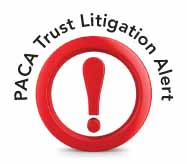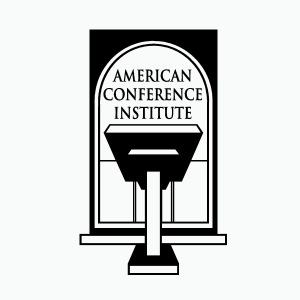 On July 31, 2012, the FDA announced its fee structure for rates to be assessed under the Food Safety Modernization Act in 2013. The rates for 2013 are $221.00 per hour if no foreign travel is required and $289.00 per hour if foreign travel is required. These new rates will be effective from October 1, 2012 through September 30, 2013, which is when the next fiscal year’s fee schedule will be published.
On July 31, 2012, the FDA announced its fee structure for rates to be assessed under the Food Safety Modernization Act in 2013. The rates for 2013 are $221.00 per hour if no foreign travel is required and $289.00 per hour if foreign travel is required. These new rates will be effective from October 1, 2012 through September 30, 2013, which is when the next fiscal year’s fee schedule will be published.
The good news is that the 2013 rates are lower than the 2012 rates, which were $224.00 per hour is no foreign travel is required and $325.00 per hour if foreign travel is required. Perhaps the rate reduction in 2013 is a sign that the FDA is attempting to implement FSMA in light of the known operational realities and pain tolerances for administrative fees that exist in the food industry.
With that said, it is important to remember that FSMA’s fee structure represents hourly rates charged by each FDA inspector participating any type of billable activity related to a given case. As a reminder, billable activities include conducting the reinspection at the facility, making preparations and arrangements for the reinspection, traveling to and from the facility, analyzing records, analyzing samples, preparing reports or examining labels and performing any other activity deemed necessary to determine compliance with the regulation or statute found to be violated in the initial inspection. Other billable activities include conducting recall audit checks, reviewing periodic status reports, analyzing the status reports and the results of the audit checks, conducting inspections, traveling to and from locations, and monitoring product disposition. Simply put, even with a reduced fee structure, FSMA related fees can add up quickly and significantly impact businesses.
Will the FDA charge and collect fees under FSMA in 2013?
Because FDA recognizes that for some small businesses the full cost recovery of FDA reinspection or recall oversight could impose severe economic hardship, FDA intends to consider reducing certain fees for those firms. FDA is currently developing a guidance document to outline the process through which firms may request such a reduction of fees. FDA does not intend to issue invoices for reinspection or recall order fees until this guidance document has been published.
Who will be affected by these fees?
Only those parties in the food and feed industry whose non-compliance results in the following activities:
- Facility reinspections – follow-up inspections conducted by FDA subsequent to a previous facility inspection that identified noncompliance materially related to a food safety requirement of the Federal Food, Drug, and Cosmetic Act (the Act). The reinspection must be conducted specifically to determine that compliance has been achieved.
- Recalls – food recall activities performed by FDA that are associated with a recall order with which a responsible party has not complied.
- Importer reinspections — follow-up inspections of a food offered for import conducted by FDA subsequent to a previous inspection that identified noncompliance materially related to a food safety requirement of the Act. The reinspection must be conducted specifically to determine that compliance has been achieved. As discussed in F.2.2., these fees will not be assessed until the agency has resolved issues associated with these fees and the public has been notified by the agency.
Can small businesses have their fees waived?
The FY 2013 fee schedule does not contain any reduced fee rate for small business. However, FDA does not intend to issue invoices for reinspection or recall order fees until a guidance document to outline the process through which firms may request a reduction of fees has been published. Once published, invoices will be issued and firms can apply for reductions as outlined in the guidance.
How does FDA plan to charge these fees?
For facility reinspection fees, FDA will invoice the responsible party for each domestic facility and the United States Agent for each foreign facility for the direct hours, including travel, spent to perform the reinspection at the appropriate hourly rate. For recall order fees, FDA will invoice the responsible party for each domestic facility or an importer who does not comply with a recall order under sections 423 or 412 of the Act for the hours spent to cover food recall activities associated with such order. For importer reinspection fees, FDA will invoice the importer for the direct hours spent to perform the reinspection including travel. Detailed payment information will be included in the invoice.
Which fiscal year rate will be used and when?
The fiscal year in which the reinspection occurs dictates the fee rate to be applied. For example, if a reinspection was conducted in September, 2012 and the invoice was issued in October, 2012, the fee rate to be applied would be the FY 2012 rate. The invoice clearly itemizes the fiscal year, hours and rate used to calculate the total invoice amount.
How long does the responsible party have to pay the fees?
Payment must be made within 90 days of the invoice date.
What happens if the responsible party or U.S. Agent does not pay?
Any fee that is not paid within 30 days after it is due shall be treated as a claim of the United States government subject to provisions of subchapter II of Chapter 37 of Title 31, United States Code.







